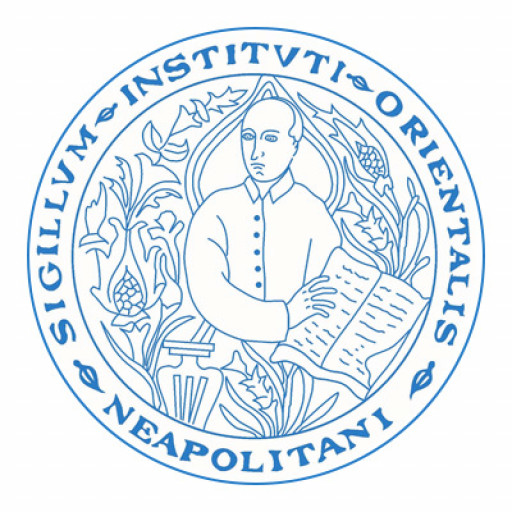Photos of university / #unibirmingham
The Bachelor of Arts with Honours in African Studies at the University of Birmingham offers students a comprehensive and multidisciplinary exploration of the diverse cultures, histories, societies, and political developments across the African continent. This programme provides an in-depth understanding of Africa’s rich heritage, contemporary challenges, and its significant role in global affairs. Throughout the course, students engage with a wide range of topics, including African history, politics, economics, languages, and cultural studies, enabling them to develop a nuanced perspective on the continent’s complexities and potentials. The curriculum is designed to foster critical thinking, intercultural awareness, and analytical skills, empowering graduates to pursue careers in academia, international development, policy analysis, journalism, or diplomatic service.
Students also have the opportunity to study various regional focuses, such as West Africa, East Africa, Southern Africa, North Africa, and Central Africa, providing a regional context to their broader studies. The programme emphasizes research skills and encourages independent investigation, including the undertaking of a dissertation that allows students to explore a chosen topic in depth. The university’s strong links with African communities, organizations, and academic institutions further enrich the learning experience, offering students practical insights and networking opportunities. As part of the programme, students can benefit from field trips, guest lectures, and seminars led by experts in African studies.
By combining a solid foundation in social sciences and humanities with regional specialization and language acquisition, the African Studies (BA Hons) degree prepares graduates to understand and contribute to discussions on African issues at both a local and global level. The programme aims to develop culturally aware, globally minded individuals equipped for the challenges and opportunities of a dynamic continent. Whether students are interested in pursuing postgraduate studies, working in international organizations, or engaging in research and policy-making related to Africa, this programme offers the knowledge, skills, and critical perspective necessary for success.
The Bachelor's degree in African Studies at the University of Birmingham offers a comprehensive exploration of the diverse history, cultures, politics, economies, and societies of the African continent. The programme is designed to provide students with a multidisciplinary understanding of Africa, integrating perspectives from anthropology, history, politics, geography, and development studies. Students will engage with a wide range of topics, including pre-colonial Africa, the legacy of colonialism, contemporary political issues, economic development, social change, and the roles of Africa within the global context. The course combines theoretical knowledge with practical research skills, encouraging students to critically analyze contemporary issues faced by African nations and societies.
Throughout the programme, students have the opportunity to study African languages, participate in fieldwork, and engage with community projects, enhancing their cultural understanding and language proficiency. The curriculum is designed to foster critical thinking, analytical skills, and a nuanced appreciation for the complexities of African history and society. The interdisciplinary approach allows students to develop a well-rounded perspective and a deeper empathy for the diverse experiences of African peoples.
The programme also emphasizes employability skills, such as research, communication, and project management, preparing graduates for careers in academia, NGOs, government agencies, international organizations, media, and more. Students may choose to undertake a dissertation or research project in their final year, allowing them to specialize in a particular area of interest within African Studies. With dedicated academic staff who are experts in their fields and strong links to African countries and organizations, the University of Birmingham’s African Studies programme offers an engaging, challenging, and rewarding educational experience for students passionate about Africa and its place in the world.
Entry requirements typically include certain academic qualifications such as A-levels, IB, or equivalent, with preferred subjects including humanities and social sciences. Applicants are expected to demonstrate a strong interest in African studies, history, politics, or languages. Proficiency in English is also required, usually evidenced by a standard test score like IELTS or TOEFL. The admission process may consider personal statements, references, and prior academic achievements to assess motivation and suitability for the programme. Students are encouraged to have a critical understanding of African cultures, economies, and political systems. For specific grades and subject requirements, candidates should consult the university's official admissions guidelines. The programme welcomes applicants from diverse academic backgrounds, provided they show an enthusiasm for exploring Africa's diverse regions and issues. Additional criteria might include relevant work experience or extracurricular activities related to African studies or international relations. Prospective students should ensure they meet the university's general entry standards for undergraduate or postgraduate levels as appropriate. It is recommended to review the detailed entry requirements directly from the university’s admissions office or official website to confirm up-to-date criteria. The programme's entry standards are designed to select candidates with strong academic potential and a committed interest in African issues, facilitating a dynamic learning environment. Furthermore, applicants should submit a well-crafted personal statement demonstrating their understanding of and motivation for studying African studies. In some cases, interviews or writing assessments may be part of the selection process. The university values diversity and encourages applicants from all backgrounds to apply, emphasizing equal opportunity. To maximize the chances of acceptance, prospective students are advised to prepare comprehensive documentation, satisfy language proficiency requirements, and clearly articulate their academic interests and career aspirations related to African studies.
The financing of the African Studies program at the University of Birmingham is primarily through a combination of tuition fees paid by students, government funding, and research grants. Domestic students benefit from competitive tuition rates, which are structured to support access to higher education and international collaboration. The program also attracts funding from various research councils and charitable foundations that support area studies, social sciences, and international development initiatives. These grants help subsidize research projects, faculty activities, and conference participation, ensuring that students and staff have opportunities to engage with cutting-edge scholarship and real-world policy issues related to Africa.
Additionally, the university offers various scholarship opportunities specifically aimed at international students and those studying area-specific disciplines, including African Studies. These scholarships are intended to promote diversity within the program and enable talented students from different backgrounds to participate without financial barriers. The program also encourages students to pursue external funding sources, such as the British Council and private foundations that support international studies.
For students enrolled in taught master's degrees or doctoral research aligned with African Studies, there are bursaries and stipends available occasionally from university funds and partner organizations. These financial supports are awarded based on academic merit, financial need, or research potential, thus helping alleviate the cost of tuition and living expenses while pursuing advanced studies.
Moreover, the university’s strong links with African regional institutions, government agencies, and non-governmental organizations may provide opportunities for sponsorships, placements, and internships that include financial remuneration or support. Overall, the financing structure aims to make the African Studies program accessible, sustainable, and capable of attracting high-caliber students and researchers committed to making significant contributions to understanding Africa’s social, political, and economic landscapes.
The University of Birmingham offers a comprehensive program in African Studies designed to provide students with an in-depth understanding of the diverse and complex societies, cultures, histories, economies, and political systems across the African continent. This program aims to equip students with critical analytical skills and a nuanced perspective on contemporary issues facing Africa today, including development, governance, conflict, and social change. The curriculum combines interdisciplinary coursework that draws from history, politics, anthropology, economics, and languages to give students a well-rounded education. Students have the opportunity to explore African languages, which enhances their ability to engage directly with primary sources and participate in relevant research projects. The program emphasizes research skills and often includes opportunities for fieldwork, internships, and joint projects with African institutions. It prepares graduates for careers in international development, governmental and non-governmental organizations, academia, journalism, and policymaking sectors related to Africa. The university’s strong links with African academic and professional networks enable students to participate in conferences, seminars, and exchange programs, providing valuable practical experience and professional connections. The faculty involved in the African Studies program are internationally recognized experts with published research and extensive field experience across the continent. The program also emphasizes critical thinking about issues such as post-colonialism, globalization impacts, and interdisciplinary approaches to understanding African societies. It is suitable for students from diverse academic backgrounds who are interested in gaining expertise in African issues and contributing to positive social change on the continent and beyond. The program typically includes core modules on African history, politics, societies, and development, alongside optional modules that allow students to specialize in areas such as African languages, security studies, or economic development. Assessment methods include essays, exams, presentations, and research projects, encouraging deep engagement with substantive topics. Overall, the African Studies program at the University of Birmingham aims to cultivate knowledgeable, critical, and socially responsible graduates equipped to make meaningful contributions to understanding Africa's complex realities and fostering sustainable development.





